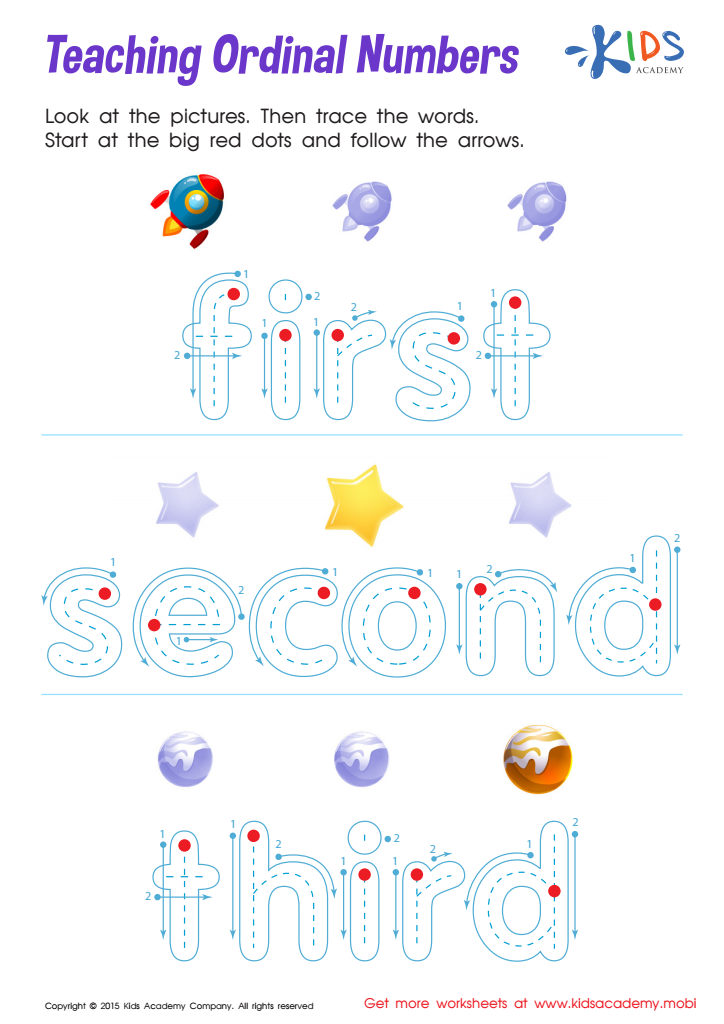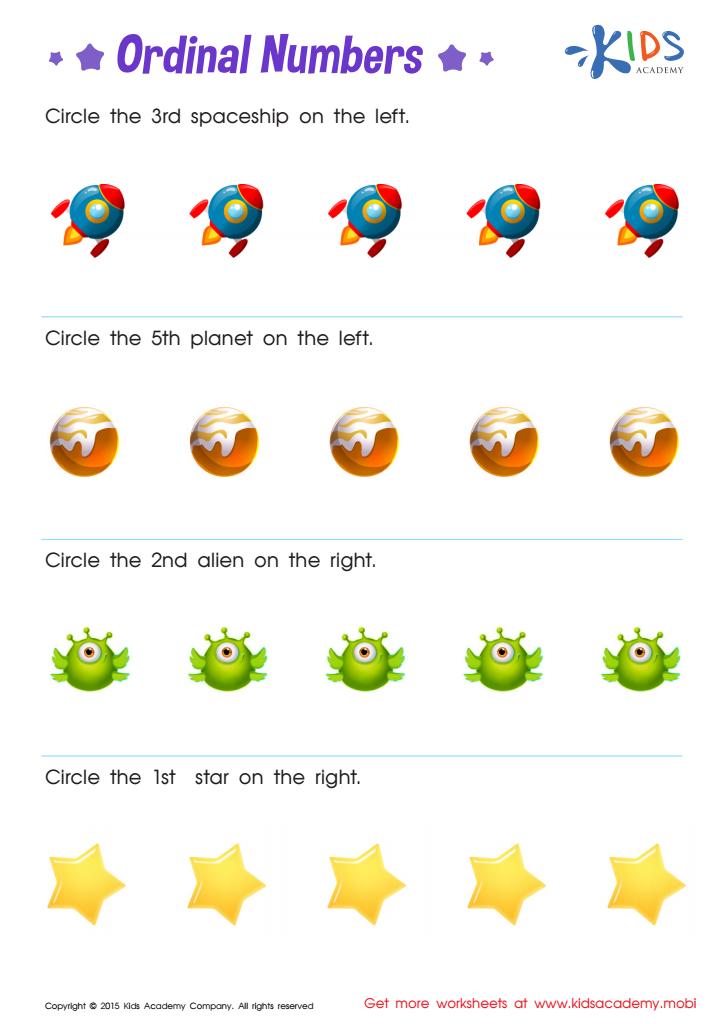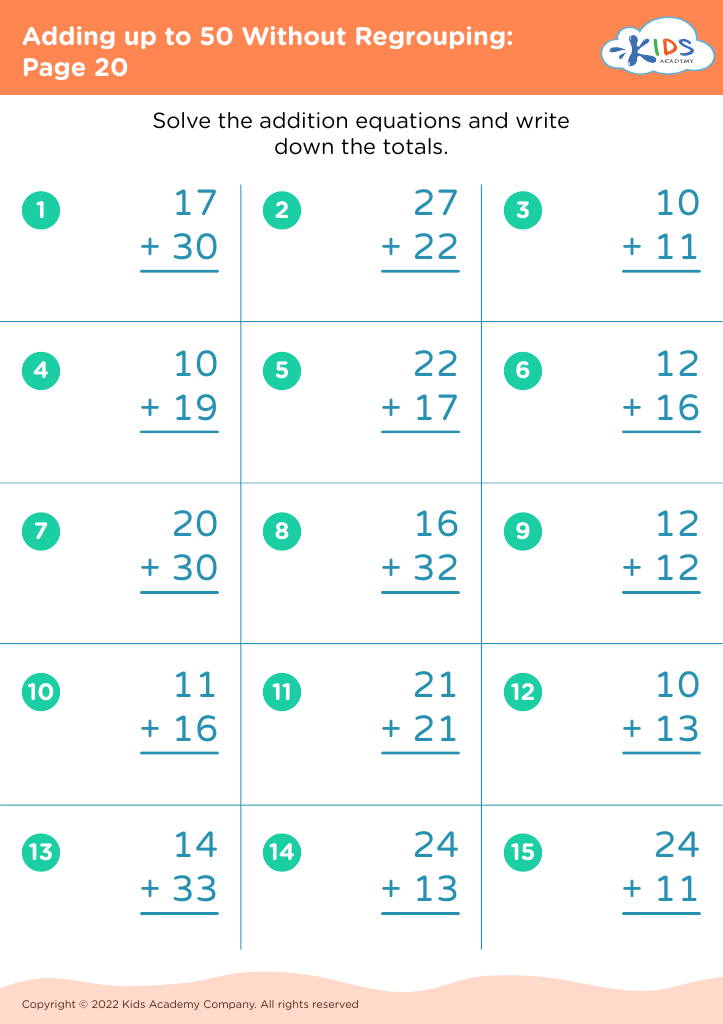Understanding ordinal numbers Math Worksheets for Ages 5-7
3 filtered results
-
From - To
Help your child grasp the concept of ordinal numbers with our expertly crafted math worksheets for ages 5-7. Designed to make learning fun and engaging, these printables employ colorful illustrations and relatable examples to teach children the first, second, third and beyond. Perfect for reinforcing classroom learning or as supplemental practice at home, each worksheet challenges kids to recognize, identify, and order items using ordinal terms. Give your young learner the tools to succeed in math while fostering critical thinking and problem-solving skills. Start building a strong mathematical foundation today with our enriching and easy-to-follow activities!


Ordinal Numbers: Teaching Ordinal Numbers Printable


Ordinal Numbers: Space Ordinals Worksheet
Understanding ordinal numbers is crucial for young children's cognitive development and practical life skills. For ages 5-7, ordinal numbers (first, second, third, etc.) are foundational in grasping the concept of order and sequence. Parents and teachers play a key role in fostering this understanding, which extends beyond math.
Firstly, ordinal numbers help children comprehend everyday routines and sequencing, crucial for following directions and organizing tasks. For instance, knowing the order of steps in a morning routine helps kids complete tasks efficiently.
In the classroom, ordinal numbers bolster comprehension in subjects like stories or historical timelines, improving literacy and general knowledge. When recounting a series of events, understanding the first, second, and last steps allows smoother verbal and written communication.
Ordinal numbers also play a key part in developing social skills. Activities like games, races, or sharing emphasize order and fairness, teaching kids cooperation and patience.
Moreover, grasping this concept aids in foundational math skills, particularly with more complex topics like patterns, time-telling, and logical sequencing.
Thus, by understanding ordinal numbers, children enhance their capabilities across cognitive, academic, and social dimensions, making them better equipped to handle everyday tasks and educational challenges. Parents and teachers should ensure this understanding to foster well-rounded development.
 Assign to My Students
Assign to My Students


















